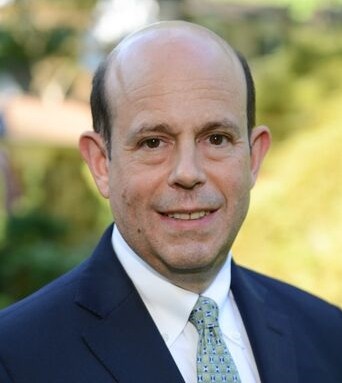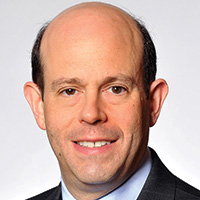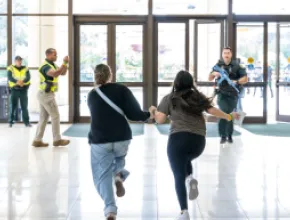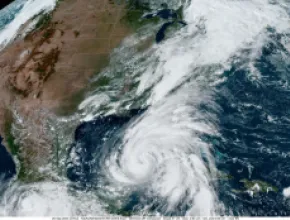The announcement of an up to $800 million settlement between MGM Resorts International and victims of the October 2017 mass shooting at Las Vegas’ Route 91 Harvest Festival—in which a shooter firing from a room at Mandalay Bay Resort and Casino killed 58 and wounded hundreds—offers valuable lessons for the meetings and events industry.
Whether events are small gatherings or large outdoor concerts, consider these takeaways to help mitigate risk and better prepare for incidents that may occur in the future.
6 Risk Management Takeaways
1. Event security should be considered for ALL meetings and events
Some meetings and events may be risker than others, but security and emergency planning should be considered for all of them. This includes physical security such as guards and secured access and also cyber-security, protection against natural occurrences such as hurricanes, and response to health emergencies.
2. The risk of accidents and incidents cannot be eliminated—only minimized
There is no way to guarantee that an incident or accident causing injury, death or damage will not occur at a meeting or event. Some are purposeful, others are flukes.
For example, an event may include layers of security to prevent incidents within the venue. Still, an attendee might become enraged and assault another guest; a cable might cause someone to trip and injure herself; or an attendee might suffer a heart attack. Bad occurrences are unfortunately a fact of life.
3. Think: “What COULD happen,” not just, “What is likely to happen”
Meeting planners use their experience and expertise to protect events against known risks. They take measures to keep unauthorized persons from attending the meeting; check exhibits and draping to ensure it won’t fall down and cause injury; and largely avoid hurricane season and other natural risks that can ruin attendance. These steps are necessary, but the MGM incident shows that they may not be enough.
[Related: Look for These Physical Signs to Help Identify an Active Shooter Threat]
In the wake of the shooting, planners should take a fresh look at their arrangements and consider additional risks that could cause problems. This may include the presence of firearms, excessive alcohol consumption, cannabis usage and venues exposed to the outdoors. Additional measures may be warranted to offer better protection against less predictable harms in the wake of this shooting and other recent incidents.
4. If something happens, you will probably be accused of negligence no matter how much you do
“Hindsight is 20-20” in the legal industry. If a guest is injured, the planner and event host should prepare to defend against a lawsuit. This does not necessarily mean that the defendants will be found liable because they were careless. The U.S. legal system allows lawsuits to be brought based upon accusations, with liability to be proven later in the litigation process.
After the Las Vegas shooting, victims brought suit against MGM and other companies with connections to the incident. The litigation was based in part on claims that Mandalay Bay hotel employees should have noted that the shooter was stockpiling weapons in his room and then alerted authorities.
This allegation was made despite the fact that MGM took extensive measures to protect its facilities and guests, including hiring a security company with extensive expertise. The fact that this horrific shooting happened at MGM’s facilities, notwithstanding its comprehensive security measures, made MGM a defendant. There is no practical way to prevent this.
5. Consider PR as part of a legal strategy
In response to lawsuits, MGM chose to counter-sue shooting victims and their families based upon a federal law protecting companies with a specific security expertise. This may have been a prudent legal strategy on MGM’s part, but it made the company look bad to the public at large. The battering MGM took in the “court of public opinion” may have been a factor in MGM’s eventual decision to settle the case. When you’re running hotels and resorts and looking to attract customers, consider your image as part of legal decision making.
6. With event security, attendee perception is nearly as important as actual measures
In the aftermath of the Mandalay Bay attack, prospective attendees at other events showed heightened concern over their personal safety. People going to outdoor concerts began to ask about safety inside and outside the venue. Others became concerned about attending high-profile gatherings.
In response, many venues increased their physical security presence at events. These guards may not add much in terms of actual security, as most venues already use a combination of guards and cameras to protect the facilities. But the added security that attendees could readily see serves to reassure them that they are being protected. This can be very important in generating attendance at an event.
It’s now apparent that making attendees feel safe can be nearly as important as their actual security in terms of generating attendance.
Read next: 9 Active Shooter Risk Management Tips—and a Video That May Save Your Life







